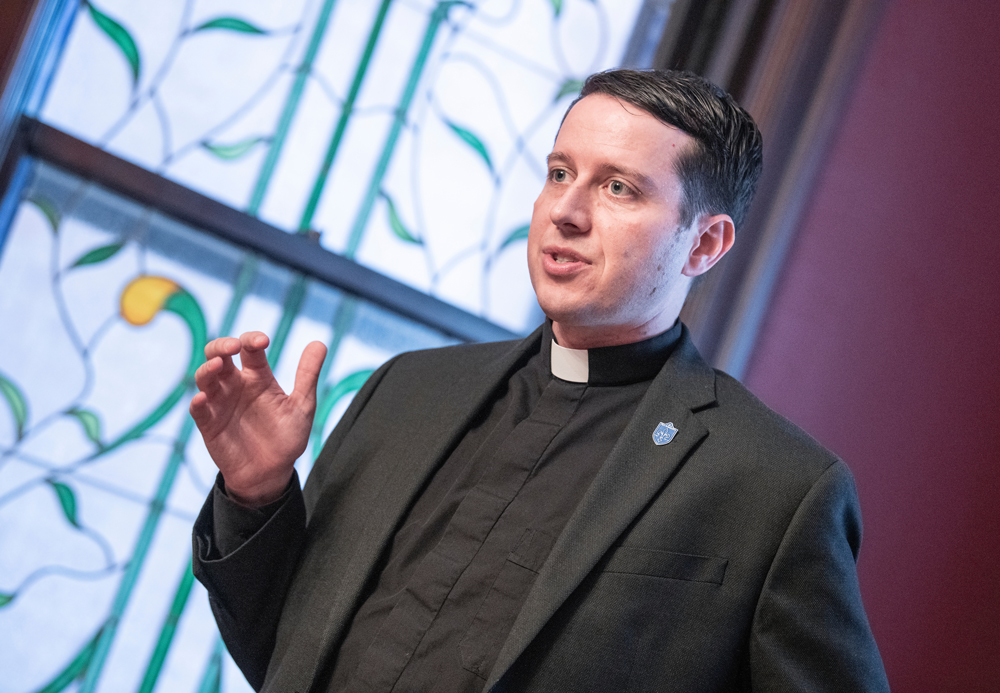HMP Professor Michael Rozier, S.J., Ph.D., Shows Students Importance of Public Health Through His Jesuit Identity in Teaching, Research and Service
As a professor in health management and policy in the College for Public Health and Social Justice and a Jesuit priest, Michael Rozier, S.J., Ph.D., is shaping the future of health.
For Rozier, his vocation and profession overlap, as both work toward a common good and promotion of the well-being of the whole person.
“My work in health management and public health, I don't think can be separated from my vocation as a Jesuit priest. Fundamentally, (I'm in this) for the enhancement of people's dignity, and to allow people to thrive in a way that God imagines them thriving in their life,” Rozier said. “I think that health care is one of those fundamental aspects of all of our lives. So, the more effective we can be at creating communities that are healthy, the better we are at delivering the kind of care that we can deliver to everyone, (and) the better off those individuals are, the better we are reflecting God's vision for the world.”
Rozier’s research work includes diving deeper into public health ethics, organizational ethics, community benefit, policy framing, population health strategies, and ethics of health technology.
He was also named the 2020-2021 recipient of the Terry Leet Teaching Award for his work teaching Ethical Leadership in Health Management and Policy to MHA students, Introduction to Global Health to undergraduates, and Ethics of Health Organizations and Health Policy to doctoral students in the Gnaegi Center for Health Care Ethics.
While researching and teaching health management and policy, Rozier applies the fundamental idea that St. Ignatius uses: of God as a teacher, one which leads us to ask the right questions while discovering a path forward.
“I try to take that approach in the classroom. I'm not interested in telling people what their worldview or their value system ought to be, but I am very interested in them asking those questions and answering them honestly,” he said. “So, I try to create an environment in which that can happen on a regular basis and that philosophy comes from one of Ignatius’ images of God.”
What the future holds for public health can sometimes be unclear in a pandemic, but for Rozier there is much hope and excitement for how public health can create a thriving society.
“What excites me is that we see genuine creativity around, especially on issues of justice and belonging and flourishing. I think people are really interested in ‘how do we create a society in which more people are thriving?’ and that there are fewer differences across communities,” he said. “The fact that these topics are such a regular part of our conversation is incredibly exciting, and I think we're going to find solutions, whether it's in payment reform, or technology or human resource pipelines, or any of the other areas we research—and that is kind of exciting.”
College for Public Health and Social Justice
The Saint Louis University College for Public Health and Social Justice is the only academic unit of its kind, studying social, environmental and physical influences that together determine the health and well-being of people and communities. It also is the only accredited school or college of public health among nearly 250 Catholic institutions of higher education in the United States.
Guided by a mission of social justice and focus on finding innovative and collaborative solutions for complex health problems, the College offers nationally recognized programs in public health, social work, health administration, applied behavior analysis, and criminology and criminal justice.
